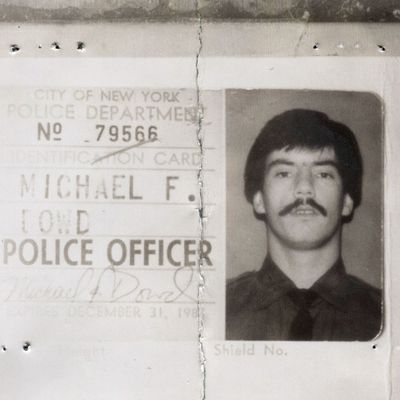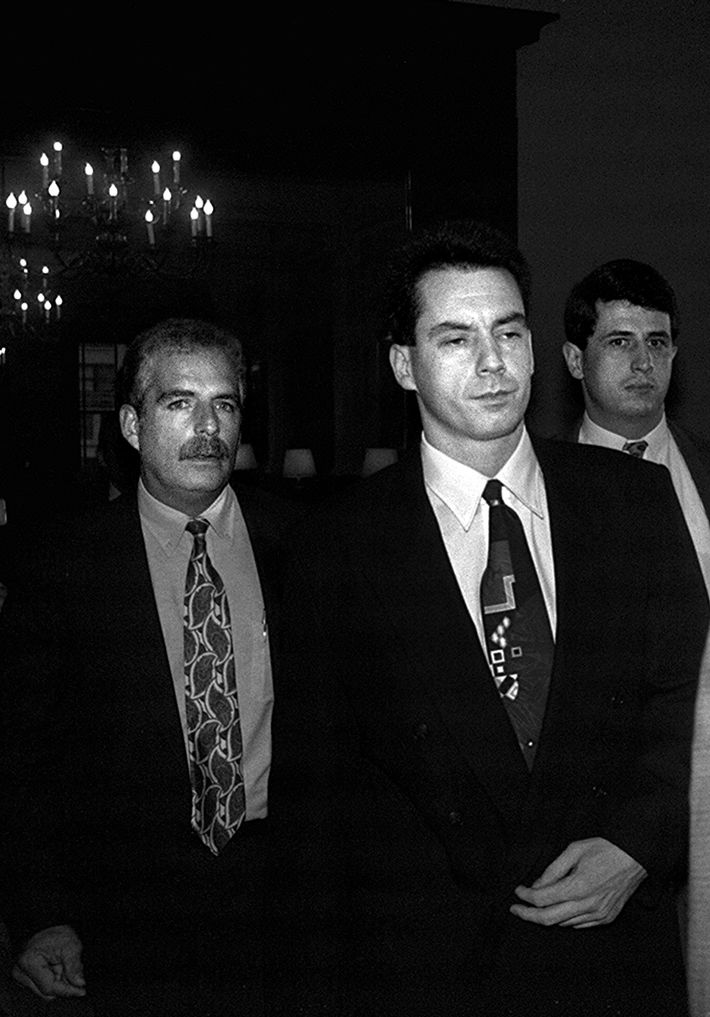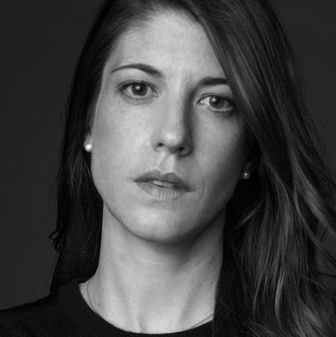
In 1994, when former NYPD officer Michael Dowd was convicted of narcotics conspiracy, he was considered one of the dirtiest cops in New York City history. As an officer in East New York’s violent 75th Precinct, for nearly a decade, Dowd and his partner Kenneth Eurell shook down dealers, protected local drug lords, and eventually dealt cocaine themselves. The case spurred an investigation into widespread corruption in the NYPD. Today Dowd believes he taught the city how to catch other dirty cops, specifically Harlem’s infamous “Dirty 30.”
The Seven Five, a new documentary from director Tiller Russell and producer Eli Holzman tells the disgraced cop’s story through interviews with key investigators, a deported Dominican drug dealer, and Dowd himself. (Holzman is adapting the documentary into a narrative feature for Sony Pictures Entertainment.) After a little more than 11 years in jail, Dowd now lives on Long Island and is shopping a book. Daily Intelligencer spoke with the former officer about life in jail, life after jail, and why agencies across America need to be honest when cops screw up.
You said you taught the Mollen Commission how to catch bad cops. How do you catch them?
In a nutshell, if someone is going to do the acts of corruption that I was involved in, they’re going to be very creative individuals. You don’t have to put an arrow with a sign saying, “Go get the money.” Don’t be so blatant. These people are relatively intelligent. They know how to smell a rat, and they are suspicious. They tried to set me up, and I’m like “Okay, this is pretty obvious here.” Don’t give telltale signs to someone who is obviously in a situation for their own gain. They are going to be somewhat cautious. I taught the Mollen Commission how to catch me, and they caught the 30 guys in that one period in that one spot.
Do you think the NYPD is different today?
Yeah, I think they take it far more seriously. They used my case for training. I actually asked for permission to go back to the Police Academy and be involved with either a symposium or a question-and-answer session. But I understood the police commissioner was not onboard with that because he felt that it might look favorably upon me.
The film talks about how your colleagues knew what you were up to but wouldn’t turn you in. What’s that code like?
Obviously, a couple of people contacted internal affairs about me. But it becomes an environment of, basically, listen he’s not putting it in my face, so I’m really not forced to say anything against him.
Police violence has been in the news. What do you make of the situation in Baltimore, and before that, Staten Island and Ferguson?
Two things: Police behavior that is inappropriate is inappropriate. There is no excuse for it. The other thing I like to point out is this — we are asking human beings who are filled with emotion and fear and personal anxieties to do a job that sometimes requires a robot. A cop is a hero when he risks his emotions and his feelings and his life, to save someone else’s life. But a cop is a bad guy when his emotions get away from him and he injures somebody and has to act as though it was appropriate behavior, because now he has to cover his ass. He has to turn to his partners and those that have been there through thick and thin and say, “Hey, can you back me up? It may not have been the best thing I could have done, but my emotions got the best of me, can you stay with me and get me through this” — and a cover-up begins. Rather than a guy saying, “My emotions got away from me and I went too far.”

Is there anything that can be done about these situations that we are seeing more often?
I think we are seeing it more and more, but it is actually happening less and less. It is just far more magnified today. I think the cops overall today do a damn good job. But when one is seen as bad, the natural response by any department or governmental agency is, “How do we make sure we don’t look bad?” When the reality is the guy made a mistake. Can we just say that? Can we just say in America today, “The cop made a mistake.” Does he make this mistake every month, every week, every year? Or is he a damn good cop and misread the situation? Cops live in a world of fear and survival. My biggest fear as a cop was that someone was going to take my gun and kill me.
Should cops wear cameras?
Yes, hands down. Absolutely.
You spent about 12 years behind bars. What was that experience like?
It’s a total process of deprivation. You go from being on top of the world one day to being an insignificant speck of sand on a beach. Your life no longer matters. One day you were a high-riding, very important individual in your own mind, and a couple of days later, after the cell door slams on you … It is quite the extreme contrast — the self-importance we all think we have. Especially myself at that time, I thought I was damn near God. To go from that experience to be handed toilet paper — and only so much. You went from running the world to begging the world for some recognition.
What do you think you learned?
I’ve learned to really embrace every day for the day itself. I’m looking at two yellow finches on my bird feeder right now, and I think that’s the most miraculous thing in the world right now. Back then, I was shaking down drug dealers and living the high life; now I appreciate finches, and a red cardinal that just landed on my deck.
What are you up to now?
I’m living on Long Island. I’m living a very humble existence. I struggled from the day of my release. I wanted to go back. I didn’t want to be out here. After doing 12 years consecutively in prison, I wasn’t ready for it. I had to actually learn how to make a sandwich. I just started a job eight months ago, [my] first real, full-time job. It is very difficult to start all over again. I’m a licensed New York City refrigeration engineer, and I’m working in a hospital in the mechanical engineering division.
I understand they are turning the documentary into a narrative feature film. Will you be involved with that project?
I believe that they are, and I believe that I will be.
Who would you like to play you?
I’ve been told Ryan Gosling, Marky Mark, or James Franco — or whoever else is cute.






























